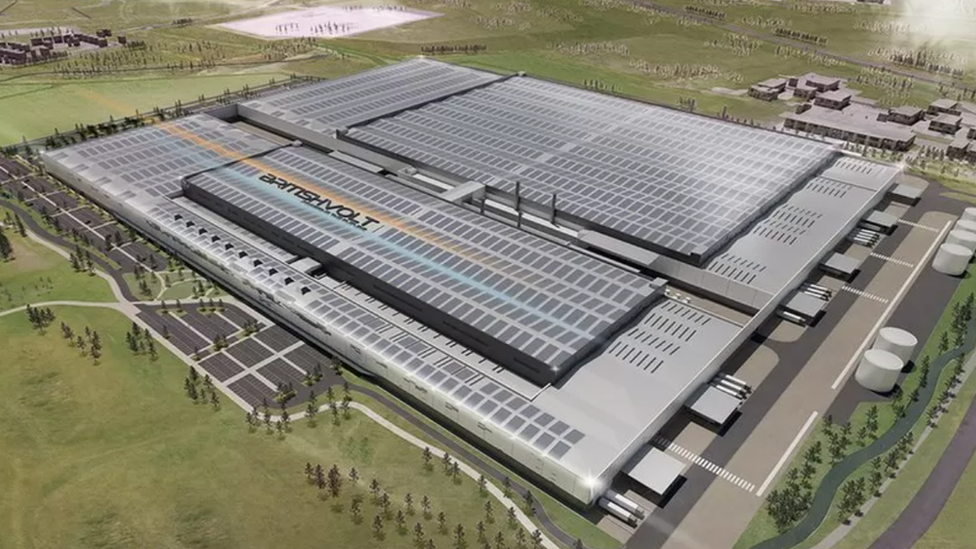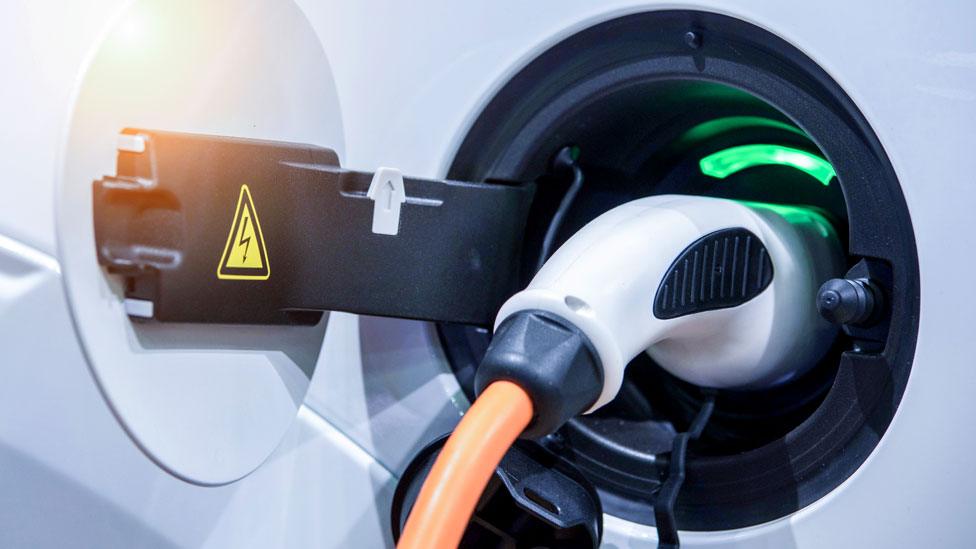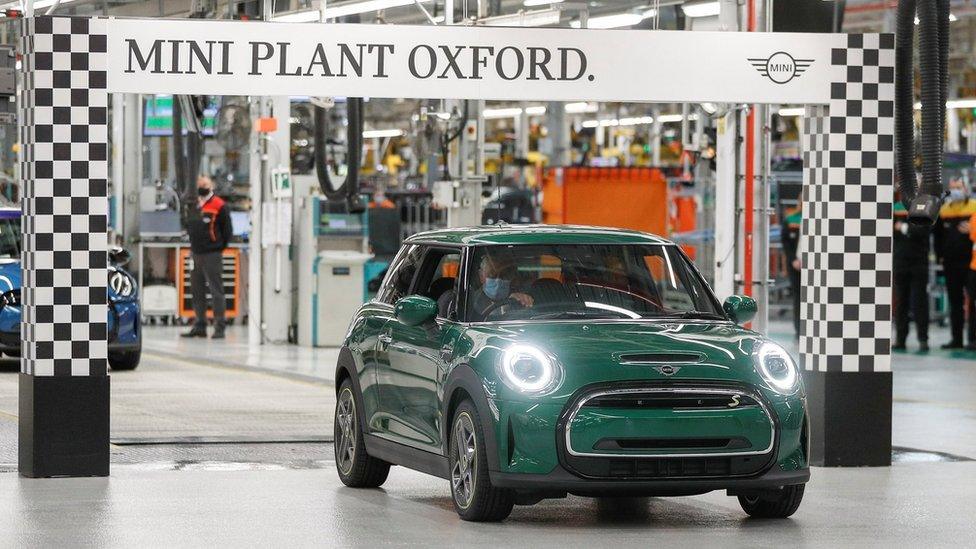UK battery firm Britishvolt near collapse as it seeks funding
- Published
- comments

Britishvolt's proposed gigafactory in north east England
UK battery start-up Britishvolt could run out of money and go into administration after the government rejected a £30m advance in funding.
The firm wants to build a factory in Blyth in Northumberland which would build batteries for electric vehicles.
The government, which had championed the development, had committed a total £100m to Britishvolt for the project.
It is understood the firm wanted to draw down nearly a third of the funding early but the government refused.
It has left the £3.8bn project, which has already been delayed several times, in doubt.
Britishvolt has struggled to find investors to help fund the construction of its so called gigafactory in Blyth which was expected to create 3,000 jobs.
It had been heralded by ministers as an example of "levelling up", a Conservative aim of investing in communities to reduce economic imbalances with other parts of the country.
Blyth made election history in 2019 when it changed from Labour to the Conservatives.
The firm, which is yet to make any revenue, has in recent months held urgent talks to try to secure fresh funds to stay afloat.
A Britishvolt spokesperson said the company was "aware of market speculation" and was "actively working on several potential scenarios that offer the required stability".
"We have no further comment at this time," they added.
Ian Lavery, the Labour MP for Wansbeck, where the site is based, told the BBC he had spoken to the chairman of Britishvolt on Monday who said the company asked the government for £30m for the project to continue.
He said: "The chairman informs me that the government have replied overnight [with] Grant Shapps the new Business Secretary, saying that they are not prepared to do that and as a consequence it very likely that Britishvolt will go into administration."
Mr Lavery added: "It is fairly and squarely at the door of the government for basically not agreeing to bring monies forward which will ensure that this project will continue. It is absolutely outrageous - what happened to levelling up?"
The Department for Business, Energy and Industrial Strategy said the government was "determined to ensure the UK remains one of the best locations in the world for automotive manufacturing as we transition to electric vehicles, while ensuring taxpayer money is used responsibly and provides best-value".
A spokesperson said the government would not comment on "speculation or the commercial affairs of private companies".
'Levelling up'
In January, the government pledged £100m to Britishvolt to help it build its battery plant, as well attract more private investment in the development.
At the time, former Prime Minister Boris Johnson hailed the investment as a "levelling up opportunity" which would bring "thousands of new highly-skilled jobs to communities in our industrial heartlands".
The then Business Secretary Kwasi Kwarteng said the factory and the jobs it was forecast to create was "exactly what levelling up looks like".
However, Britishvolt was recently forced to delay the start of production at the plant for a second time. It had been scheduled to begin by the end of next year but this was pushed back to the end of 2024.
Then in August, the company announced it would be delayed again until the middle of 2025.
At the time the firm blamed "difficult external economic headwinds including rampant inflation and rising interest rates".
The original promise of government funding had helped Britishvolt raise a further £1.7bn from private investors. These included UK asset investment giant Abrdn and fund manager Tritax.
From 2030, sales of new petrol and diesel cars in the UK will be banned and manufacturers are switching to making electric vehicles which requires an increase in battery production.
Britishvolt had already struck memorandums of understanding to make batteries for UK car firms Aston Martin and Lotus.
Related topics
- Published21 January 2022

- Published26 October 2022

- Published27 July 2022
